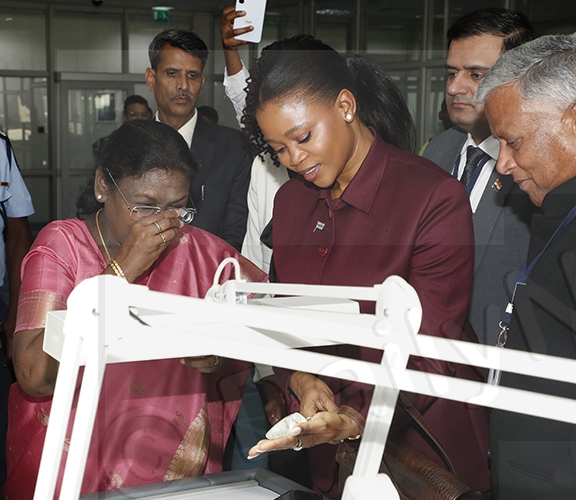BMC has potential to thrive - Molebatsi
04 Jul 2022
Botswana Meat Commission (BMC) has the potential to take farmers back to the glory days and transform the livestock and beef industry.
Assistant Minister of Agriculture, Mr Molebatsi Molebatsi revealed during a tour of Maun BMC to appreciate its operations and challenges.
Botswana Meat Commission, he said, was still in good hands as they had recently elected a new board with the members whom, he said could take it to greater heights.
A well functional abattoir, he said, was critical to the transformation of the cattle industry, hence they had elected a board that has the best interest of farmers at heart.
He also learnt that the Maun abattoir has a consultant, who was helping on finding ways to diversify its product as the government intention was to see farmers taking cattle rearing as a profitable business.
Botswana Meat Commission, he said, was important in driving the value chain concept, as they believed that other products could generate more profits than exportation of beef.
“We want to see the abattoir being self-sustained, stop taking subvention from the government as well as paying farmers highest possible prices, which will serve as an incentive for them to produce more,” he said.
Mr Molebatsi noted that government was assisting Botswana Meat Commission in finding proper paying markets to keep it running.
Furthermore, he noted that government was introducing strategies aimed to improve livestock production, citing that a decision had been taken to turn Ramatlabama Artificial Insemination facility into a centre of excellence to ensure local farmers had acceptable quality of breeds.
Currently, the ministry, he said had ordered machinery and staff would be taken to institutions in South Africa for training on how to operate those machines.
Earlier on, the outgoing plant manager, Mr Oabona Ramotshwara informed the assistant minister and his entourage that the plant was on track as this year they were trading at 72 per cent against the set annual slaughtering budget.
The plant, he said, had slaughtered 4 823 animals against the 6 650 and ‘this is a sign that we are doing well’.
In addition, Mr Ramotshwara said the buying price of P28/kg and quarantine system were working wonders, noting that since its introduction they had slaughtered 3 367 from Makalamabedi, 861 from private quarantines and 10 570 from areas in the green zone such as Rakops and Gweta.
The bulk of the beef, he said was sold in Botswana with a bit of export to Democratic Republic of Congo.
Mr Ramotshwara noted that they used to export to Mozambique, but stopped the Mozambicans reported that they preferred products from feedlots.
“They wanted soft meat and we are currently working jointly with the Ministry of Agriculture to see how best we can provide for the market,” he added.
For his part, Member of Parliament for Ngami, Mr Caterpillar Hikuama acknowledged government efforts to improve the beef industry despite challenges faced by farmers.
He believed that government could keep farmers at ranches and cattle posts if they were paid on time, adding that some were losing interest in farming because they felt that their animals had no value.
Some farmers, he said, resorted to ‘throwing away’ their animals to the private abattoirs because of the delay by Botswana Meat Commission to pay them.
“The Ngamiland farmers pride lies more on livestock industry because it is their source of livelihood and we appreciate your efforts, which aims to ensure they benefit from their animals,” he added. ENDS
Source : BOPA
Author : Esther Mmolai
Location : MAUN
Event : tour of Maun BMC
Date : 04 Jul 2022





